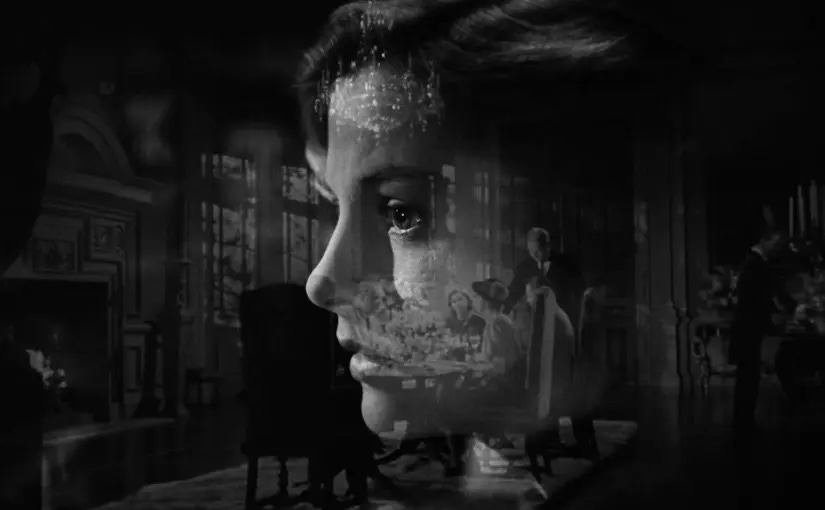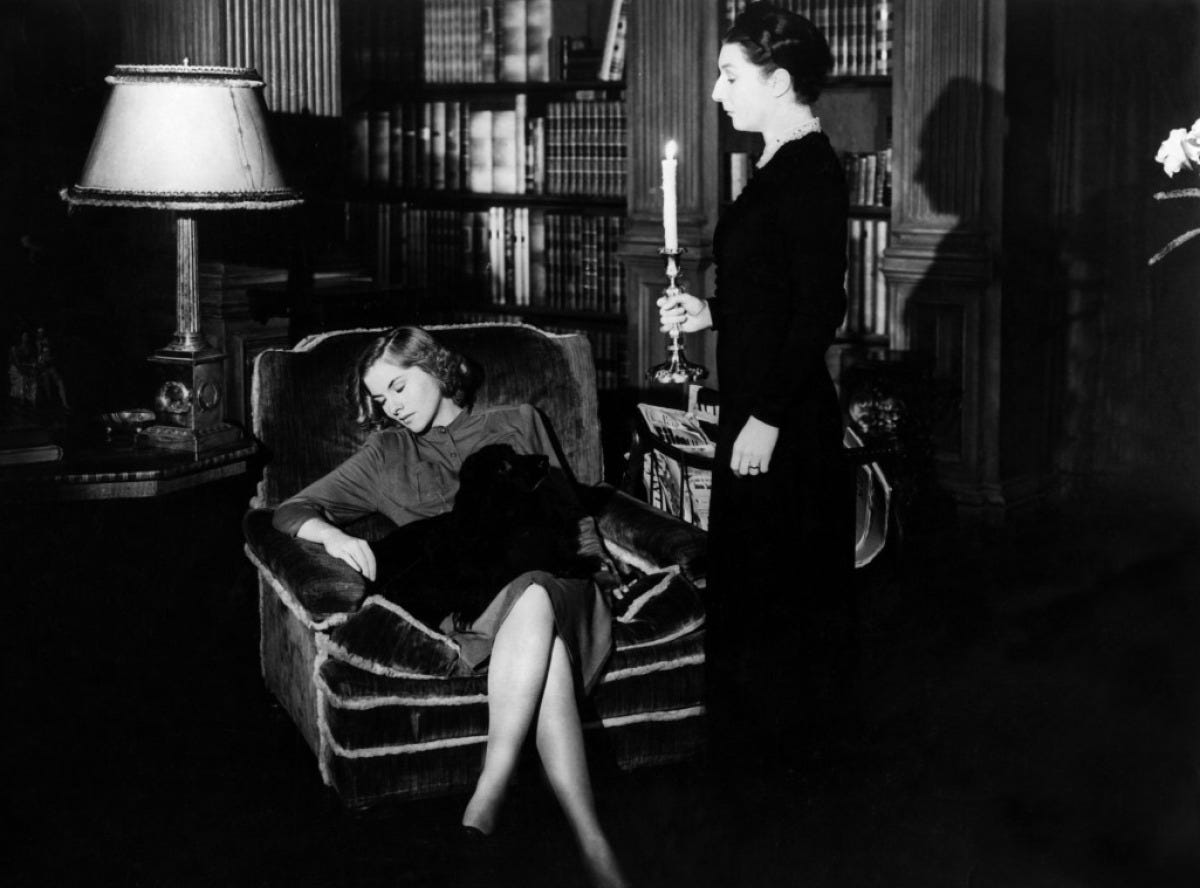Summary: This starting point will assist with the first few chapters of Rebecca, containing some personal reflections, as well as plot points and considerations.
Chapter One
The dreamlike, haunting opening of Rebecca is considered among the finest in modern literature.
Chapter One is barely more than a few pages, but serves as more than enough to grasp and entice. A dream-set return to Manderley, the place which stands central to the novel, binding together its characters and their lives.
There is a sense of danger and the forbidden within this journey into Manderley, ‘secretive and silent as it had always been,’ which now lies unkempt and seemingly forgotten. We are unsure of the chronology of this vision, but we assume that the narrator has not seen the place for many years. They move through it in spectral form; even attesting to the common occurrences which exist within the dream world (‘Then, like all dreamers, I was possessed of a sudden with supernatural powers and passed like a spirit through the barrier before me.’).
Not since Wuthering Heights has a house felt so off-limits, strangled both by nature and its past. This is a past the narrator clearly knows well, for they identify specific plants and landmarks from what they refer to as ‘our time’.
We are provided with a description as dense and foreboding as the nature reclaiming the space, which culminates in a sinister proclamation.
We would not talk of Manderley, I would not tell you my dream. For Manderley was ours no longer. Manderley was no more.
We know now that our narrator has someone else involved in her story. Her use of the plural form ‘we/our’ highlights this, but no names are provided other than that of Manderley itself. It is suggested that grander, more carefree days have been experienced by both place and person. A suitable level of desire to explore has been created by means of the rich and consuming introduction.
Chapter Two
Chapter Two brings us back to reality, but carries on from the final imagery of the opening.
“We can never go back again, that much is certain. The past is still close to us. The things we have tried to forget and put behind us would stir again, and that sense of fear, of furtive unrest, struggling at length to blind unreasoning panic - now mercifully stilled, thank God - might in some manner unforeseen become a living companion as it had before.”
We are given the description of a couple who are far from home. They have created a sense of ritual to their day, a pastiche of what they once knew perhaps, but indications are that things have been tumultuous and harrowing (‘We have both known fear, and loneliness, and very great distress.’), along with some simultaneously heartbreaking and inspiring reflections upon the nature of trauma and resilience.
“Happiness is not a possession to be prized, it is a quality of thought, a state of mind.”
This is the chapter in which several key players are introduced. Mrs. Danvers, a disapproving housekeeper at Manderley, as well as Mrs. Van Hopper (once the narrator’s employer) are both recalled in a marginally unfavorable tone. Rebecca is also named for the first time.
What must I have seemed like after Rebecca?
In that short statment so much of this tale is held. Comparison is, as they say, the thief of joy, and this is a through line which is built upon from this point onwards.
How can one break out of a predecessor’s shadow when their influence still looms so largely over all those whom they have been in contact with?
This is the narrator’s dilemma, and one which we will be exploring together as we proceed.
These two chapters were enough to garner my full attention, leaving me in a state of (somewhat fearful) wonder as to what may lie ahead. Du Maurier is magnificent at layering and providing information in such a way that it echoes the environments she creates. The dream sequence is ethereal and iridescent, whereas the following chapter is oppressive, as if conveyed through stifling heat, clipped in its delivery.
Let’s unpack this a little further.
Talking Points for Chapters 1 & 2
How does the setting of the novel, particularly the descriptions of Manderley, impact the tone and mood of the first two chapters?
What do we learn about Rebecca through the eyes of the narrator, despite her not being physically present?
How does Rebecca’s memory seem to cast a shadow over the events?
Do you find the narrator to be unreliable in any way?
What parts of the story seem subjective or open to interpretation?
How does the narrator's perception influence the reader's understanding of the events?
What role do you think the narrator’s insecurities play in shaping her view of the people around her, particularly Rebecca?
How does the natural environment—such as the descriptions of the sea, the garden, and the house—interact with the psychological state of the characters? Do you feel there is a link between the external world and the internal world of the narrator?





